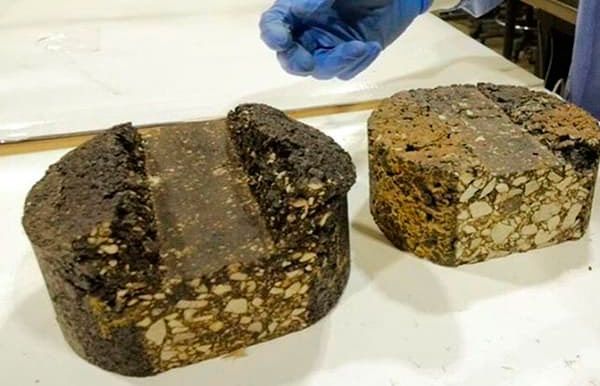Pig manure will be used for the production of asphalt
Last reviewed: 16.10.2021

All iLive content is medically reviewed or fact checked to ensure as much factual accuracy as possible.
We have strict sourcing guidelines and only link to reputable media sites, academic research institutions and, whenever possible, medically peer reviewed studies. Note that the numbers in parentheses ([1], [2], etc.) are clickable links to these studies.
If you feel that any of our content is inaccurate, out-of-date, or otherwise questionable, please select it and press Ctrl + Enter.

A team of researchers from North Carolina has developed a unique way of making asphalt paving. Specialists suggested replacing expensive oil with a cheaper and more affordable option - pig manure.
The search for a cheap biological alternative to oil continued for a rather long time, and during the research it was established that manure contains the same oils as in oil, only of lower quality. Studies have shown that manure is not suitable for the production of gasoline, but it will be completely suitable for the production of asphalt pavement.
Scientists supported the Science Foundation, which allocated funds for research work and they were able to develop a technology that turns pig waste of life into black bitumen - an astringent material used in the production of asphalt. It should be noted that astringent oil-based materials are quite expensive, while the cost of bitumen from manure will be just over 0.50 cents per 4.5 liters, in addition, the new material is more environmentally friendly.
The process of production of dung asphalt differs from the standard method used in oil refineries - today oil is processed mainly for fuel production, and the remains are sent for the production of asphalt pavement.
According to one of the researchers who developed the biological road surface, Elli Finney, the process of production of dung asphalt consists in the destruction of the molecular structure of manure, the secondary synthesis of the adhesive structure on the bio-base. The resulting viscous material is ultimately cheaper, does not require high temperatures for mixing and compaction, and will last much longer than traditional asphalt.
Also, scientists noted that asphalt from manure will not have a characteristic smell, since volatile fatty acids, which give a pungent unpleasant smell to animal waste, evaporate during processing. In addition, the dry substances remaining in the process of producing bio-asphalt can be used as a fertilizer.
The experts tested the new bio-asphalt and the road surface showed good results (including 20 thousand cycles of simulating the mileage of trucks). According to scientists, the results of the test correspond to the requirements of the Department of Transport, as a result of which a special company was created to conduct more extensive research.
According to Ellie Finney, the commercial side of the issue has its economic benefits, first of all, it is assistance to farmers and the construction industry.

Asphalt from the waste products of pigs will help solve one of the problems of farms - wastewater, especially those located in large states. Every year around 20 billion liters of pig manure are produced in the world, the cost of a one and a half kilometer road from two lanes using a traditional asphalt on the basis of oil is more than 800 dollars. Researchers noted that only in the United States there are about 4 million kilometers of asphalt covering, the cost of laying and repair which can be significantly reduced, using the biomaterial and not causing significant damage to the environment.
